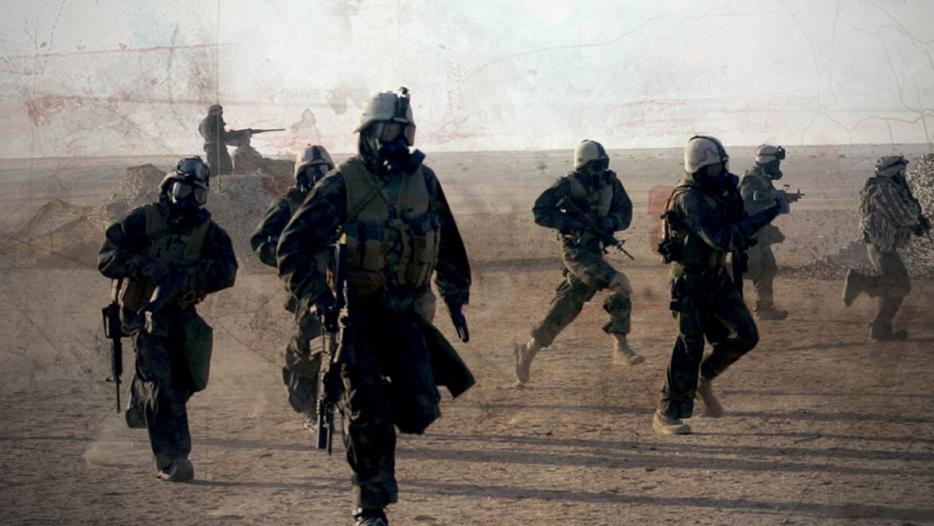Why did George W. Bush choose 19 March, 2003 to invade Iraq, rather than some day in May, or July, or never? Because he was afraid that further delay would give United Nations arms inspectors time to refute the accusation (his sole pretext for making an unprovoked attack on an independent country) that Saddam Hussein’s regime was working on nuclear weapons.
The US president couldn’t say that, of course, and so instead his administration’s spokesmen mumbled about the need to get the war over and done with before the summer heat made fighting impossible. Yet American soldiers proved perfectly capable of operating in that summer heat during the ensuing seven years of fighting, in which over 4,000 of them were killed.
That was nothing compared to the number of Iraqi deaths. At least five times as many Iraqis have died violently in the decade since the US invasion as were killed by Saddam’s regime in the ten years before the invasion. The exact number is unknown, but Saddam’s secret police were probably killing less than 2,000 people a year in 1993-2003. An estimated 121,000 Iraqi civilians have died in the military and political struggles of the past ten years.
Iraq’s infrastructure has still not recovered to its prewar level. More than a million Iraqis still live in internal exile, unable to return to the homes from which they were “cleansed” during the Sunni-Shia sectarian war of 2006-2007. Another million have fled the country for good, including a large proportion of the country’s intellectual and professional elite.
Iraq ranks eighth from the bottom on Transparency International’s corruption index, ahead of Somalia and North Korea but below Haiti and Equatorial Guinea. The government in Baghdad, though dominated by sectarian Shia politicians, does little for the impoverished Shia majority. The Sunni minority fears and hates it. And the Kurdish ethnic minority in the north just ignores Baghdad and runs a state that is independent in all but name.
Iraq’s courts do the regime’s will, torture is endemic, and the swollen army and “security” forces (used almost exclusively for internal repression) eat up a huge share of the budget. And from the perspective of American grand strategy, the main result of the war has been to weaken the position of the US in the Gulf region and strengthen that of its perceived opponent, Iran.
The United States spent about $800 billion on the Iraq war, and will eventually spend at least another trillion dollars on military pensions, disability payments and debt service. Yet it achieved less than nothing. Why on earth did it invade in the first place?
Even the defenders of the invasion have stopped claiming that Saddam Hussein was cooperating with al-Qaeda terrorists who were plotting to attack the United States. They were also plotting to overthrow and kill Saddam, as everyone with any knowledge of the Middle East already knew.
The UN weapons inspectors never found the slightest evidence that Saddam had revived the nuclear weapons programme that had been dismantled under UN supervision in the early 1990s. The people in the White House who took the decision to invade must have known that there was no such programme: the way they carefully worded their propaganda in order to avoid explicit lying is ample evidence of that.
The strategist Edward Luttwak once suggested that the real reason was that the invasion of Afghanistan in 2001 had been too easy. After 9/11 the American people really wanted to punish somebody, and Afghanistan had not provided enough catharsis. So another invasion was an emotional necessity, and (given the American public’s ignorance about the Middle East) almost any Arab country would do.
There was certainly a parallel desire among the neo-conservatives in the Bush White House to restore American power to unchallenged dominance after what they saw as the fecklessness of Bill Clinton’s administrations in the 1990s. That required a short and successful war that would put everyone else in awe and fear of American military might—but, once again, any weak and unpopular country would have done. Why Iraq?
The closest we can come to a rational answer is the argument, common in Washington a decade ago, that permanent military bases in Iraq would give America strategic control of the entire Gulf region.
The role of those bases would not be to ensure prompt delivery of the region’s oil to the United States at a low price: only 11 percent of US oil imports come from there. The bases would instead enable the United States to block Gulf exports of oil to China if the United States found itself in a confrontation with that country. (Geo-strategic arguments are often frivolous.)
None of these explanations can justify what was done, and we haven’t even gone into the damage done to international law by this blatantly criminal act. But can we at least conclude that the world, or even just the United Nations, has learned a lesson from all this?
Probably yes for the United States, at least until memories fade. (Give it ten more years.) Not so much for the rest of the world, but then most other countries are less prone to invade faraway places anyway.





